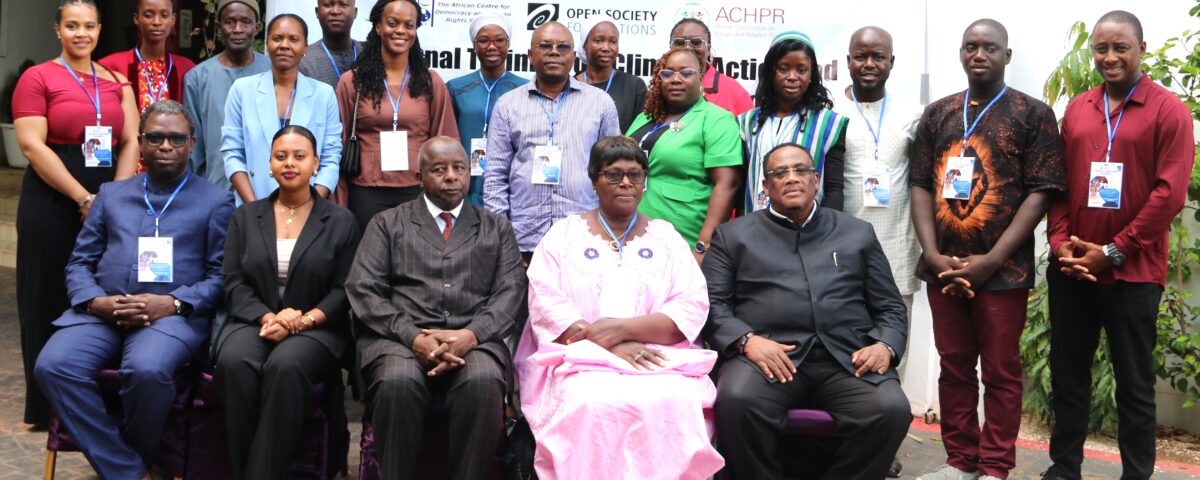Banjul, The Gambia – July 29, 2025 — The African Centre for Democracy and Human Rights Studies (ACDHRS) today opened a high-level Regional Training on Climate Action and Human Rights for African Civil Societies at the Coconut Residence in Bijilo, bringing together human rights defenders, activists, and legal experts from across the continent for a three-day capacity-building forum.
Held under the theme “From Environmental Conservation to Climate Action: Empowering Civil Society Organizations in Africa for Sustainable Development and Human Rights Advancement,” the training aims to equip participants with practical tools and knowledge to strategically engage with the African Commission on Human and Peoples’ Rights (ACHPR), particularly in addressing the continent’s intensifying climate crisis.
Speaking at the opening ceremony, Meron Eshetu Birhanu, delivering a keynote on behalf of Hon. Commissioner Janet Ramatoulie Sallah-Njie, Vice Chairperson of the African Commission and Special Rapporteur on the Rights of Women in Africa, said the forum represents “more than a training, it is a strategic convergence of Africa’s human rights vanguard.” She stressed that climate change, resource conflict, and entrenched patriarchy are collectively undermining rights and called on participants to leverage regional mechanisms such as Observer Status and shadow reporting to hold states accountable.
“The Commission is a beacon of hope, but its mechanisms are only as strong as the civil society that engages with them,” she emphasized. She further highlighted the importance of the recently adopted AU Convention on the Elimination of Violence Against Women and Girls, which she urged civil society to champion for swift ratification.
In his remarks, Prof. Mabassa Fall, Vice Chair of the ACDHRS Governing Council, warned of the existential threat posed by climate change, referencing the deadly floods in Guinea-Conakry as a tragic reminder. “Our Earth is in crisis. The planet has no borders, it is our common home, and it is burning,” he said. He called for the recognition of ECOCIDE as a crime against humanity and urged participants to harness the African human rights system to protect both people and biodiversity.
Facilitator Dr. Nana Busia Jr. contextualized the training within Africa’s unique legal framework, noting that Article 24 of the African Charter is the only provision globally that explicitly recognizes environmental rights as justiciable. “The tools you take from this training are not just for advocacy but are grounded in legal norms binding on African states,” he said, while warning of diminishing international commitment to environmental norms and funding.
Fellow facilitator Mr. Edmund Foley encouraged participants to view the training as a mutual exchange. “This is a historic moment. Let us become agents of change through this training,” he urged, highlighting the role of civil society in shaping Africa’s development and rights agenda.
In her opening remarks, Mrs. Hannah Forster, Executive Director of the ACDHRS and moderator of the session, outlined the three core focus areas of the training: Gender-Based and Sexual Violence, Environmental Human Rights, and Natural Resource Governance. She emphasized that the programme would help participants better connect their work with the African human rights system and its procedures.
As the session concluded, participants observed a moment of silence in honor of victims of climate-related disasters, symbolizing the urgency and gravity of the climate justice work ahead.
The training continues until July 31, offering intensive sessions on legal frameworks, advocacy strategies, and peer learning, all aimed at amplifying African voices in the global climate and human rights discourse.


